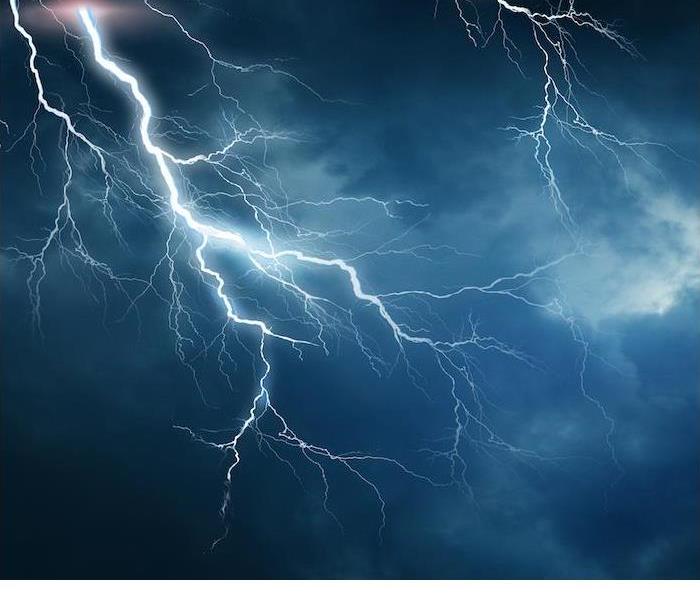The 3 Major Storm Damage Types | SERVPRO® of East Greenville County
9/7/2022 (Permalink)
Severe storms can be devastating to homeowners. While many homes these days are built to endure weather events of any severity, almost every property and house will experience some degree of destruction when severe storms strike.
Strong wind gusts and wind disasters can throw debris all over the place, as well as cause heavy rains, snowstorms, lightning and floods, depending on the time of year and the storm. All pose a serious risk to your property and your home’s structure.
Depending on the kind of storm and events taking place, your house may be exposed to varying levels of damage. The landscape around your home, the geography of the area and the condition of your home’s foundation or building materials all play a role in determining the extent of possible harm. (We admit that there is an element of chance involved.)
While it’s helpful to be familiar with every type of storm damage, in our area, Greenville is particularly vulnerable to flooding, thunderstorms and hail. Thunderstorms with strong winds are particularly common in our area.
Unless authorities authorize you to do so, you should never stay in your home after it’s been damaged by a storm. Some kinds of damage won’t be noticeable to the naked eye, so it is important to have the building checked out.
Wind
When structures are subjected to powerful gusts of wind at extraordinarily high speeds, this type of destruction follows. Tornadoes and hurricanes are the most prevalent causes of high winds, but even thunderstorms can produce gusts of up to 100 mph.
Extreme wind gusts might scoop up debris in your yard and throw it into your vehicles or home. When a storm approaches, it is critical to remain inside and away from any windows or outside walls in case glass shatters or the walls are damaged by debris.
You can also take action in advance of the storm to reduce the amount of wind-related damage. Clear out any items that the wind may be able to toss around, like limbs, big rocks, loose furniture and dead trees.
Water
Water damage is a very frequent occurrence both during and following a storm. Even a minor storm can produce heavy downpours that cause water to gather outside your home and then make its way inside through the openings on your doors and windows.
If there is enough water present, it may potentially drip into your foundation and severely damage its structural integrity.
Consider using specific landscaping designs that allow water to flow away from your home rather than accumulate next to it to reduce the amount of damage that water may do to your home. You could even install a rain garden, which is a decorative way to enhance your yard and keep all that rainwater from becoming a major issue.
For your downspouts to function as intended and keep the weight of water off your roof, you should also regularly clean them. Water can collect in clogged gutters and find its way into your house from the top, seeping down to the bottom.
Impact
Another common kind of storm damage that can have disastrous effects on your home is “impact damage.” Strong winds can cause trees to topple or debris to be thrown into your property, causing damage. In short, this type of damage is caused by anything that impacts or hits your home or other items on your property.
To avoid the disastrous impact of severe weather, trim any trees that are growing over your home and remove any that are decaying. This can prevent Mother Nature from giving you and your home any trouble when strong winds blow.
Disasters brought on by the weather cost almost $145 billion in losses in the United States alone in 2021. These suggestions could help you save a lot of money and time and improve the security of your home by preventing these calamities before they touch our area.
If your home suffers the effects of severe weather, contact the experts at SERVPRO of East Greenville County. With state-of-the-art equipment and years of experience, our restoration specialists can tackle any tragedy.
When you suffer storm-related damage to your home or business, it’s important that you know who to call! Contact us today to get your storm damage restoration started faster.






 24/7 Emergency Service
24/7 Emergency Service
